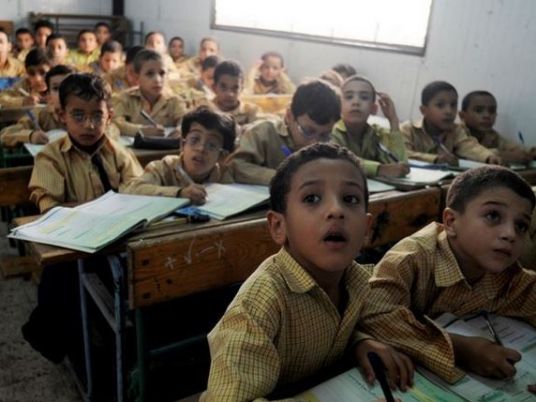A group of about 200 medical students marched down Qasr al-Aini Street on Monday afternoon protesting the Health Ministry’s decision to assign the majority of the nation’s 2010 medical school graduates to “unreasonably remote locations.”
Proceeding behind a banner that read, “We demand ministerial decisions and media documentation,” the protesters — most of whom were wearing their lab coats — called for immediate reassignments.
“Over 75 percent of [graduates] have been assigned to districts in Upper Egypt and northern Sinai,” complained one 2010 graduate, who wished to remain anonymous. “These are unreasonably remote locations, lacking in services and facilities — we can’t be expected to move to places that aren’t supplied with electricity and running water, and still do our jobs.”
While it may seem logical that the government would be concerned with supplying medical services to the districts currently lacking them, many of the protesters argued that the amount of new graduates assigned to such regions “does not make sense.”
“We’re not against assigning graduates to rural, or even remote areas like Upper Egypt,” stated Hisham Adel, who did not want to use his real name, “but it doesn’t make sense to move most of us, when there are definitely positions within the larger governorates that still need to be filled.”
A colleague of Adel’s, a fellow protester, voiced similar concern.
“The hospitals and clinics in these distant governorates have been getting by just fine for the past 30 or more years. They don’t need our help,” the protester said.
“But even if they did — and some of them do,” Adel interrupted, “there’s no need to be sending all of us.”
Adel also cited recent ministry decisions as part of the problem.
“In the past year, the ministry has shut down various medical facilities and offices, and disbanded several medical societies in the capital — at least 40 — without offering any kind of explanation,” Adel said. “And then we hear that we’ve all been reassigned.”
These procedures have all raised questions that Adel and the other protesters believe need to be “answered immediately.”
A smaller number of protesters seemed to be more concerned with their female colleagues, who had a far smaller presence in the march.
“How is it acceptable to send so many young girls to Arish and the Libyan border — areas that don’t even have a proper police force, or any form of law enforcement, especially given current circumstances?” asked a lab coat-wearing graduate who also wished to remain anonymous, saying he believed the graduates “speak as a body, with one voice.”
“If the ministry doesn’t care about our women, we do,” he asserted, adding that “these are trained doctors and nurses, not soldiers.”




